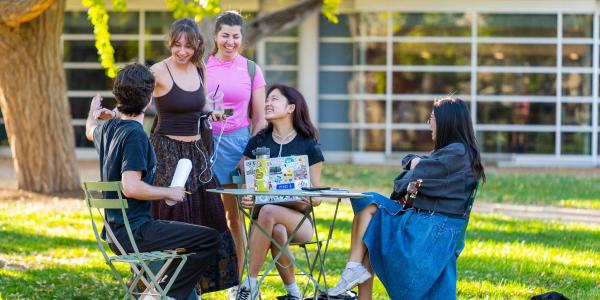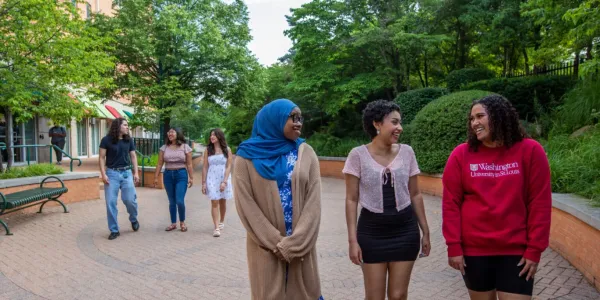A study of WashU students reveals a nuanced trade-off between autonomy and connection.

If you’ve ever quietly celebrated when a friend canceled plans, you know that social interaction can have a downside. Who wants to go to a party or bowling night when the alternative is alone time with a bowl of ice cream, a comfy couch, and Hulu?
A new study co-authored by Jessie Sun, an assistant professor of psychological and brain sciences, has uncovered key trade-offs in our social lives.
Sun and her colleagues found that college students feel a loss of autonomy — that is, less in control and free to do what they want — when interacting with anyone other than their closest relationship partners, such as close friends, family members, or romantic partners. “To feel connected to others, you sometimes have to give up a little control,” Sun said.
In the study, Sun — working with collaborators Elaine Hoan and Geoff MacDonald of the University of Toronto — took a new look at surveys of 352 WashU students conducted more than a decade ago. The surveys are worth revisiting because those students provided a trove of information about their daily lives through detailed, real-time reports, Sun explained.
The responses showed that students felt less autonomy when socializing with people they were less close with (e.g., casual acquaintances, strangers, or coworkers), compared with being alone. In other words, there was a price to be paid for hanging out in the South 40 or joining a study group at Café Bergson. “Some sense of autonomy is a basic human need, so this is an important tradeoff,” Sun said.
Students generally said they still felt free to do what they wanted when spending time with their close friends, family members, and romantic partners, offering an important insight into why such relationships matter to mental health and well-being. Notably, students reported more autonomy when interacting with romantic partners than when they were alone.
As Thanksgiving approaches, some may already be preparing to keep some of their opinions to themselves around the dinner table. But Sun said it makes sense that students typically still feel a similar sense of control around family members compared to being alone.
“Autonomy is the ability to assert your own preferences instead of being at the whims of other people,” she said. “Many students willingly choose to spend time with family, even when they know there’ll be disagreements about politics when they go home for Thanksgiving.” Likewise, for some students, simply getting to spend time with close friends or a romantic partner might be more important than choosing which movie to watch or where to go out for a bite.
In healthy romantic relationships, both partners tend to have strong feelings of autonomy, Sun said. Those feelings can be nurtured to make relationships happier and more durable, she added. “Ideally, both partners will feel like they have a say and are able to express themselves. That’s easier to do if you find someone who enjoys doing similar things, so you’re not constantly compromising.”
The study also showed that autonomy isn’t the only path to happiness. “We found that both feeling autonomous and feeling connected with others were associated with positive emotion,” Sun said. “But feeling connected to others was a better predictor of happiness than feeling in charge and in control.”
For Sun, the takeaway is simple but resonant: The happiest relationships give us room to be both independent and interconnected.
“It would be counterproductive to avoid connections with other people just because you want more autonomy in your life,” Sun said. “You really need both.”





